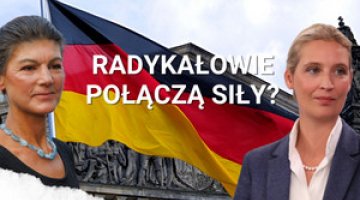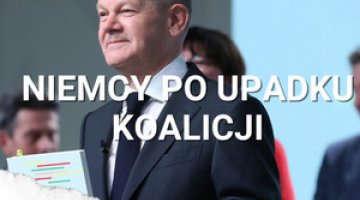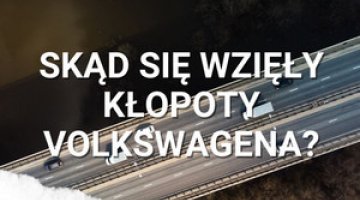Analyses
The German energy sector: between politics and economics
The conflict over the extended usage of nuclear power plants and the ‘price’ to be paid by the plant owners for this extended operation is intensifying inside the German government. The governing parties the CDU/CSU and the FDP undertook to extend the period of the operation of the nuclear power plants in the coalition agreement. However, at present, some politicians from the CDU want this extension to be as short as possible as opposed to the CSU and the FDP. This conflict has provoked disputes not only among Christian Democrat politicians and between government members but also between the coalition parties and the opposition (the SPD and the Green Party want the reactors closed soon). The less evident sources of the dispute are the CDU’s positioning as a potential future coalition partner of the Green Party and a conflict between politicians who support ‘green technologies’ with political representatives of the power industry giants, the owners of the reactors. The bitterness of the dispute will make it difficult to prepare a new energy strategy for Germany for this September, an essential aspect of which is the future of the nuclear energy sector. The outcome of this dispute will determine Germany’s stance on the EU’s energy policy.
The governing parties take a different approach towards the nuclear energy industry. The CDU, the CSU and the FDP decided in the coalition agreement signed in 2009 to extend period of operation of the nuclear reactors. Through this they intended to amend the law adopted in 2002 by the SPD/Green Party government, envisaging that the reactors would be gradually closed by 2020. It was argued that the amendment was necessary, considering the significance of nuclear power as an ‘interim technology’ until Renewable Energy Sources (RES) start to be used for the production of electricity to a greater extent after 2030. The political declarations made in 2009 suggested that the deadline for switching off the reactors would be extended by some two decades or even may not be set at all.
However, the stances have diverged inside both the government and the coalition parties over the last year. A new faction has emerged in the CDU and is led by the environmental protection minister, Norbert Röttgen, a close associate of Chancellor Angel Merkel. The faction insists that the operation period of the reactors should be extended by only 4 to 8 years. In turn, the FDP has toned down support and no longer suggests that no deadline for closing nuclear power plants should be set but is trying to push through an extension of the period of operation by 12 to 20 years via the economy minister, Rainer Brüderle. The CSU is the only party to sustain its previous stance that the reactors should be in operation as long as possible. At the same time, all those parties support the development of Renewable Energy Sources (RES); Norbert Röttgen being the clear leader in this field (for example, he has suggested granting government guarantees for financing off-shore wind farms).
Politics and economics – reasons for changes in the stances of the coalition parties
Political reasons: The present government’s room for manoeuvre has been limited as regards the issue of extending the period of the usage of the reactors due to its loss of majority in the Bundesrat after the lost elections in North Rhine-Westphalia this May. For this reason it would be impossible to win a vote to extend the operation period of the reactors in this house of the parliament, given the strong opposition from the Green Party and the SPD. The government has been trying to find a legal way of bypassing the Bundesrat which would not end in a defeat at the Constitutional Court (the opposition has warned it will contest any such decision at the Constitutional Court). Since some legal analyses suggest that extending the operation of the reactors by ten years without the Bundesrat’s consent would be permitted by law, it may be assumed that Angela Merkel will be inclined to adopt that solution. Another political factor is the increasing public support for the Green Party, while the FDP’s ratings are going down. The Greens can be a potential coalition partner for the CDU at both federal (after the elections in 2013) and local levels. Significant support for the nuclear power industry from the CDU would limit the party’s coalition-building options and impede its alliances with the Greens (opponents of the reactors), which would mean that the Christian Democrats would be able to co-operate only with their present coalition partner, the FDP. Besides, in their efforts to win voter support, political parties in Germany have been limiting their support for the nuclear power industry since more than half of the German public are against it.
Economic reasons: The change in the coalition parties’ stances is also an effect of lobbying by manufacturers of ‘green technologies.’ The lobbies are afraid that an extended operation period for the reactors will reduce the opportunities of installing RES in Germany (see Appendix 1). Their surveys, being used by politicians, indicate that building RES in Germany on a mass scale will enable technological development and production growth and, consequently, a reduction in unit costs and at the same time an improvement in the competitiveness of German exports. Thus, RES development at the expense of closing reactors is being done in order to modernise the economy and to improve the competitiveness of exports. Furthermore, a prolonged usage of reactors means higher costs of radioactive waste management.
The nuclear lobby argues that an extended period of operation for the reactors could bring a reduction in electric energy prices (for example by reducing imports of fuel and cutting the costs of carbon emission reduction), which is particularly important for the energy-consuming industry. Germany will also benefit from public levies (estimated to reach several dozen billion euros) to be imposed on reactor owners in connection with the extended operation of the power plants. Various combinations of several solutions are also being considered: a tax on nuclear fuel, an RES support fund, payments for building radioactive waste storage facilities (which are ‘hidden’ costs of the operation of the reactors) and voluntary undertakings by owners to invest in RES.
Impact on Germany, Poland and the EU
The German government this September will have to decide on a new national energy strategy and determine the significance RES and the nuclear power sector will have in the production of electric power (see Appendix 2). Furthermore, it will have to determine the way of reducing the industry’s energy consumption levels. Given the large number of mutually contradictory expert opinions, politicians find it difficult to clearly define the real economic interests. Therefore, various interest groups can be expected to intensify their PR and political efforts to influence the decision-making process in the government.
The government is likely to extend the operation period of the reactors by a decade or so because this variant offers the largest economic benefits while having a high chance of winning a dispute with the opposition in front of the Constitutional Court. A longer period of operation for the reactors will have a positive effect on GDP growth and the level of electricity prices. At the same time, the demand for gas power plants will be reduced, also causing a lower need for gas imports, including those from Russia.
The government’s decision will affect Germany’s stance on the European Union’s nuclear power sector, including such issues as support for funding technological development and obligatory deadlines for launching radioactive waste storage facilities. The level of Germany’s self-sufficiency in electric power production will decide on the extent of the country’s engagement in pushing through the development of power transmission networks in the EU.
For Poland, the German market – given its size and connections – is the best-available source of power supplies. Whatever scenario for nuclear power usage after 2020 is chosen, Germany is still likely to be able to export electric energy, whereas power imports will grow later (which will also depend on the period of operation for the reactors). Germany is able to export electric energy to Poland until 2020, which may be vital in a situation where outdated power plants must be closed and a power shortage may happen in Poland. In the longer term, increasing imports to Germany may offer opportunities to Polish energy producers.
Appendix 1
Characteristics of the ‘green technologies’ lobby
key players:
- manufacturers of renewable energy equipment, organised in several associations (the most important one being Bundesverband Erneuerbar Energien),
- municipal power distribution companies (Stadtwerke), which are to a great extent responsible for the rapid growth in RES installations; the energy companies E.ON, EnBW, RWE and Vattenfall are just entering the market and are mainly interested in large power plants (for example, offshore wind power plants)
- federal states in which production facilities for renewable energy equipment and industry facilities which manufacture components for drawing energy from renewable sources are located (Saxony, Thuringia, Saxony-Anhalt, Mecklenburg-Vorpommern, Schleswig-Holstein, Lower Saxony and Bavaria)
objectives:
- maintaining extra charges paid by consumers for energy obtained from renewable sources (Stadtwerke)
- increasing public spending on research into green technologies and development of a network of renewable energy sources
- maintaining subsidies for the development of innovative industry branches (eastern federal states)
- becoming a global leader in exports of renewable energy technologies (manufacturers, federal states)
represented by:
the SPD, the Green Party, partly by the environmental protection minister Norbert Röttgen (CDU) and politicians from the eastern federal states
Characteristics of the nuclear energy lobby
key players:
- energy companies E.ON, EnBW, RWE and Vattenfall
- energy-consuming sectors of industry (for example, the aluminium and steel production sector and also service providers such as Metro AG and Deutsche Bank)
- federal states in which nuclear power plants are located (especially Bavaria, Baden-Württemberg and Hesse, where power production is strongly dependent on them)
objectives:
- keeping a relatively cheap and profitable production of nuclear power as long as possible (industry) and the continuation of its exports (energy companies)
- maintaining jobs in the region and also budget revenue resulting from a power plant being located in a given federal state
represented by:
the FDP (especially the economy minister Rainer Brüderle), the CSU and a large part of the CDU
Appendix 2
Power production in Germany in 2008
|
Fuel
|
Share in production (%)
|
|
Brown coal
|
23.6
|
|
Nuclear power
|
23.3
|
|
Hard coal
|
19.6
|
|
Renewable energy sources
|
14.5
|
|
Natural gas
|
13.6
|
|
Other
|
5.4
|
Source: Energieszenarien für ein Energiekonzept der Bundesregierung, August 2010




